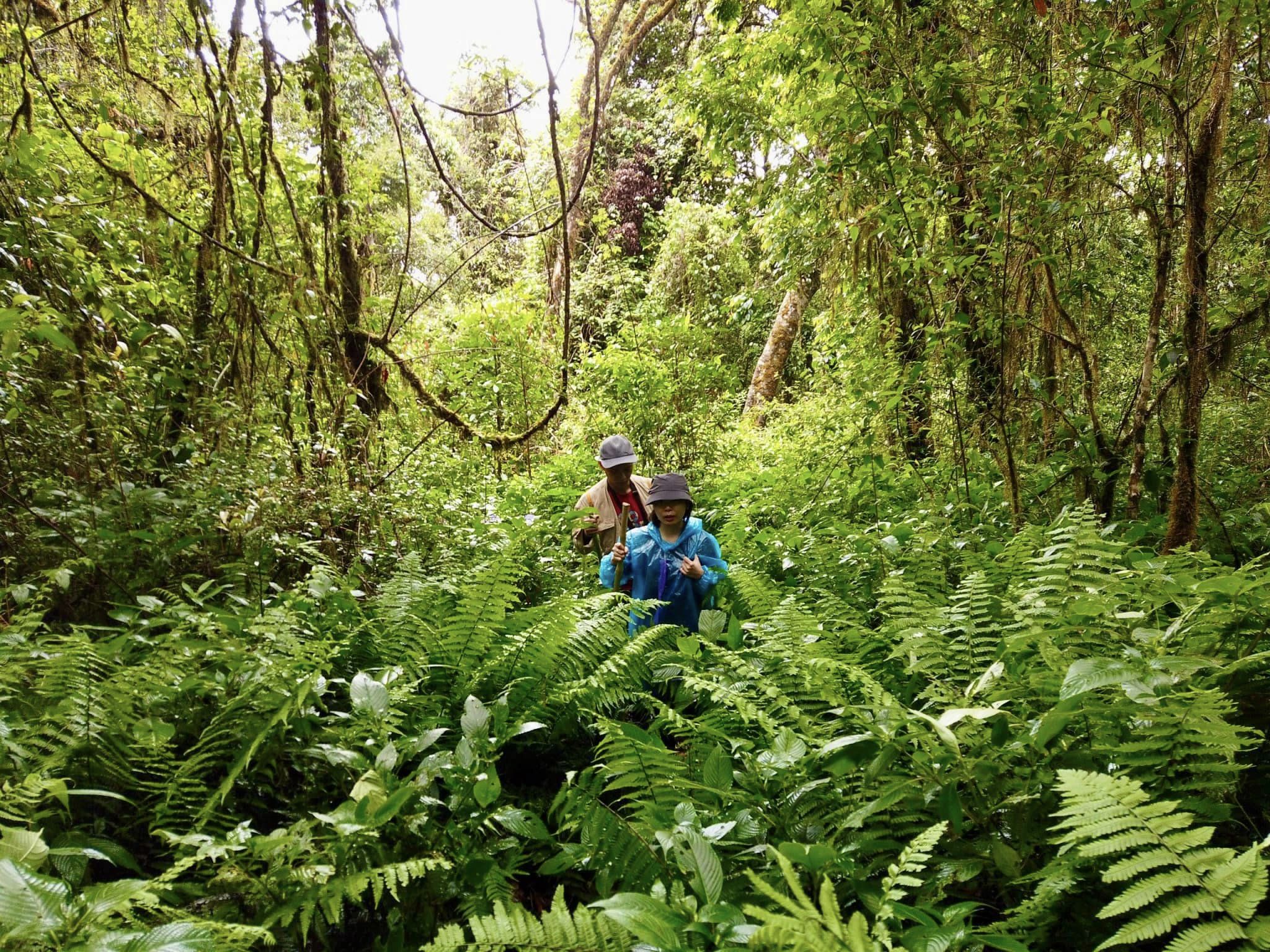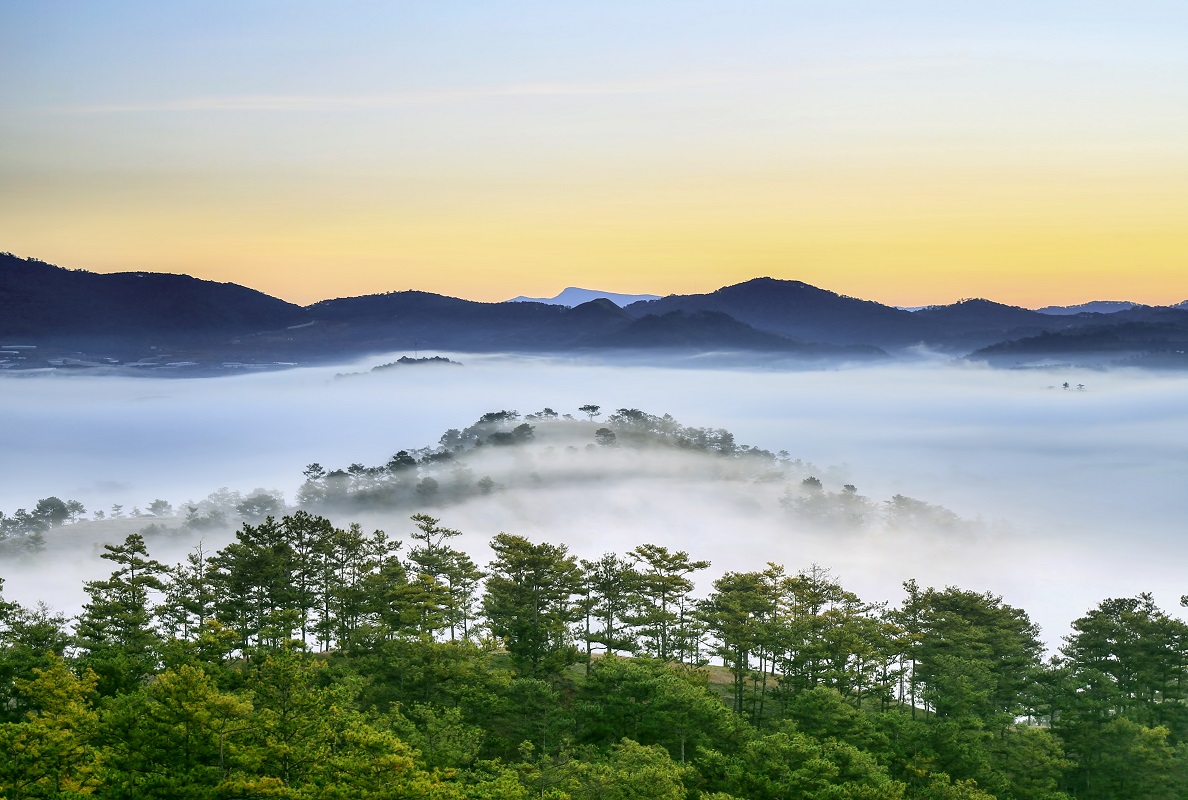An unforgettable sacred moment for Langbiang world biosphere reservation site.
Received an invitation from UNESCO's Office in Paris - France for the 27th International Coordinating Council on the Program on Man and the Biosphere (ICC MAB) of UNESCO to be held in Paris, France from June 8 to 12, 2015. The Vietnamese delegation led by Mr. Pham S, Vice Chairman of Lam Dong Provincial People's Committee, participated in the meeting of the International Coordinating Council of the UNESCO Human and Biosphere Program to protect the World Biosphere Reserve in Langbiang.

The total number of members attending the meeting were 250 delegates from 120 countries around the world, including 24 member countries, observer countries (including Vietnam) and international organizations. The total number of nominations for consideration of the World Biosphere Reserve at the 27th meeting in 2015 is 25. After the Vietnam Delegation briefed on the process of completing the dossier and the core values of Langbiang World Biosphere Reserve; At the end of the introduction of the Vietnamese Delegation, the Chairman of the Conference asked all the participants who had objections, and miraculously, all had no objections. The moment when President Sergio Guevara hammered the hammer to recognize the Langbiang World Biosphere Reserve, Lam Dong province of Vietnam was at 16:15 Paris time, equivalent to 21:15 Hanoi time, June 9, 2015. As soon as the hammering stopped, the Vietnamese delegation raised the Vietnamese national flag to express their joy and pride in the recognition of the world. The Vietnamese delegation cheered and clapped “Langbiang ! Langbiang !...” with joy and raised the Vietnamese flag in the solemn and sacred space of the Conference, it was the most sacred and unforgettable moment for Langbiang World Biosphere Reserve.
Langbiang National Park has an area of 275,439 ha, including a large primeval forest area with the core at Bidoup-Nui Ba National Park, the buffer zone of communes of Lac Duong district and the transitional zone of Da Lat city, Don Duong district, part of Duc Trong district and part of Dam Rong district. This is one of the four biodiversity centers of Vietnam, its value is global. Science has recorded that this area has 153 species of flora and fauna listed in the Vietnam Red Book (2007) and 154 species listed in the IUCN Red List (2010). The World Wildlife Fund (WWF) has identified this as the number 1 conservation priority area (Area SA3) in the conservation program of the main Southern Truong Son mountain ranges of Vietnam.
Forest resources play an important role not only in conserving biodiversity, forest ecosystems, regulating climate but also creating livelihoods for local communities and attracting national and international-class eco-tourism economy

Langbiang National Park has a large primeval forest area, including core and buffer zone and transition zone with forest ecosystem, rural ecology and urban ecology with core area being Bidoup-Nui Ba National Park. The land, climate, and water resources are suitable and favorable for the development of crops and livestock with high economic value in the direction of agriculture such as: growing vegetables, flowers for export, cold-water fish farming, and modern animal husbandry. The climate in this area is mild all year round, along with rich forest landscapes and beautiful topography, with the presence of Langbiang World Biosphere Reserve recognized by UNESCO as the 9th Biosphere Reserves of Vietnam and the first in the Central Highlands, are favorable conditions for the whole region to develop culture, tourism and hi-tech agriculture.
Langbiang WBR is one of the four biodiversity centers of Vietnam and the world, not only regulating water sources, regulating climate, creating natural landscapes, and providing natural water sources for coastal provinces in South Central and South East region but also create livelihoods for communities in Langbiang WBR.
The international cooperation process of Langbiang WBR has national and international stature for scientific research and ecotourism cooperation.
Bidoup - Nui Ba National Park, the standing body of Langbiang WBR, has been a partner with many memorandums of understanding on scientific research cooperation with more than 20 organizations including universities, research institutes, and other NGOs in the world such as Columbia University, University of Wisconsin, Global Wildlife Conservation (USA), Prest Botanical Garden (France), Kyusu University, University of Tokyo (Japan), Laval University (Canada), Singapore National Botanical Garden, Royal Australian Botanical Garden, Leibniz Wildlife Research Institute, Trier University (Germany), Vietnam-Russia Tropical Center…Through the programs, 34 international articles have been published, 16 turns of staffs of the Park's Officials have been able to participate in short-term training courses abroad…
From 2008 to now, from project ideas proposed by the Park, sponsors such as Japan International Cooperation Agency (JICA), Trust Fund for Forestry (TFF), Development Assistance Agency United States (USAID), German Agency for International Cooperation (GIZ), Global Environment Facility (GEF), International Union for Conservation of Nature (IUCN), World Wildlife Fund (WWF) )…supported the Garden to implement 09 technical assistance projects such as: Pilot project on multi-purpose forest management method in Lam Dong province (2008-2011), Project on capacity building for community-based management (2010 – 2013), Project to overcome obstacles to improve management efficiency of protected areas in Vietnam (2013-2015), Project for sustainable natural resource management – Biodiversity component ( 2015-2020), Project on sustainable forest management in biodiversity conservation (2021-2025)…
In addition, the park is also considered as an active, responsible and contributing member of networks/forums around the world to which Bidoup - Nui Ba National Park is a member such as: Network of World Biosphere Reserves. Langbiang with the ASEAN Biosphere Reserves Network, the International Botanical Garden Conservation Network…
A synchronous solution is needed to continue promoting the value of national and world-class biosphere reserve
The event that UNESCO recognized Langbiang World Heritage Site to be considered UNESCO has officially given Lam Dong an opportunity to continue implementing its sustainable development strategy, so every organization and individual must always appreciate the achievements and have strategy to exploit the intangible value of Langbiang WBR at present and in the future. Langbiang WBR is a very special area because of its high biodiversity and large scale. This event will help Lam Dong continue to implement its sustainable development strategy through the exploitation of total values of forest ecosystem services. The focus is on developing tourism and services, contributing to the construction and development of Da Lat city and its vicinity to become a center of tourism, training, scientific research of the whole country and a national center of tropical forests research. At the same time, continue to promote the development of high-tech agricultural production with a focus on producing and exporting vegetables, flowers and medicinal herbs and other organic agricultural products.
Lam Dong is one of the leading localities in the implementation and effectiveness of the Government's payment for forest environmental services program. More than 8,000 households have benefited from ecosystem services in Langbiang WBR through their contributions to the protection and maintenance of ecosystem values. Langbiang WBR will create more opportunities for indigenous ethnic communities to participate in economic development and environmental protection activities, thereby improving the livelihoods of the community. UNESCO's recognition of Langbiang WBR is also a recognition of the Vietnamese government's active contribution to the implementation of international commitments that Vietnam has joined in the fields of biodiversity conservation, climate change and sustainable development for the Millennium Goals initiated by the United Nations.
To implement the strategy of conservation for development and development for conservation, in our opinion, the authorities need to develop programs and plans that are both current solutions and strategic plans approved by Lam Dong province. Co-set to "conserve for development, develop for conservation" for Langbiang WBR in the coming time:
First, it is necessary to strengthen the propaganda for the residential community and tourists about the meaningful value of Langbiang WBR, considering this as a billion-year-old property bestowed by nature, raising awareness of community responsibility for forest, landscape and forest ecosystem protection at present and in the future;
Second, promote communication and promotion of the image of Langbiang WBR, aiming at positive activities and effectively exploiting the potential of culture, tourism and agriculture. The Management Board of Langbiang WBR, with the participation of stakeholders and operating under the guidance of the Vietnam Committee for Man and Biosphere, continues to promote international cooperation and attract strategic investors in the process. international integration development;
Third, set up and maintain a management forum to decide on important issues related to conservation and development of Langbiang WBR. In 2015, the Japanese Government's technical assistance project was implemented to help Lam Dong Provincial People's Committee in establishing a management mechanism for Langbiang WBR, contributing to improving core values in the operation process;
Fourth, closely link the region with Khanh Hoa province in terms of sustainable tourism development, in order to attract domestic tourists from Khanh Hoa province and tourists from other provinces coming to Khanh Hoa to travel to Lam Dong, because this is the shortest forest and sea tourism route in the Central Highlands provinces. When visitors go through this natural heritage road, the peak of Khanh Le pass is 1700 m high, there is fog all year round, every day the fog appears until 8 am and after 16 pm onwards full of fog, this is the only road in Vietnam running through the natural forest for nearly 100 km, with the most beautiful scenery in Vietnam;
Fifth, functional industries need to continue to promote the image, potential and unique advantages of Langbiang WBR to attract domestic and foreign strategic investors to deploy eco-tourism projects of national and international level in the coming years.
With the initial success, in the coming time, with the internal efforts of the Management Board of Langbiang WBR, authorities at all levels, Lam Dong people and tourists, with the support of the international community, we hope that in the near future Langbiang World Biosphere Reserve will be preserved and developed according to the motto of the World Program of People and Biosphere.
Dr. Pham S - Vice Chairman of Lam Dong Provincial People's Committee